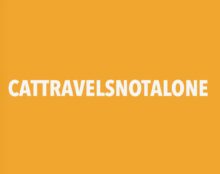INSTITUT FÜR KÜNSTLERISCHE FORSCHUNG
ZUR KÖRPERPOESIE DER KINDHEIT
The Institut für künstlerische Forschung zur Körperpoesie der Kindheit (Institute for Artistic Research on Physical Poetry of the Childhood) was founded in 2018 by Esther Strauß, Jack Hauser and Sabina Holzer as a trans-disciplinary research performance-lab.
The institute is dedicated to the Savage Mind (la Pensée Sauvage), inspired by Claude Lévi-Strauss. It understands the process not as the shortest possible way to a work, but as the actual event. Research means not-knowing; means not-yet-knowing and wanting to know through an exploration.
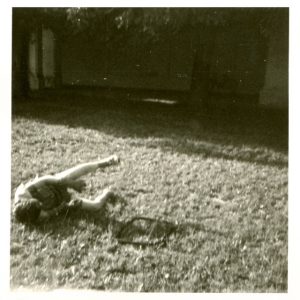 Photo: Sommer 1968, Jack Robin
Photo: Sommer 1968, Jack Robin
„Is childhood the same as a child? Is body equal to body?
I can hardly believe that I have borders, solid outlines.
I feel like I’m scattered in the air, I think in other living things
and live in things outside of myself. In this instability and mutability
of the currents and forces, tussling shows where is up and down.
It connects me to my weight and to the world.
Some things are important. Some are not.
That too, is constantly changing.
Oh, there were so many things that just cannot be explained.
You could and could think about afternoons.
For example: who had said for the first time: „Never?“
(Sabina Holzer)
1.Tagung / Spiel: Raufen
IKFKPK – Institut für künstlerische Forschung zur Körperpoesie der Kindheit
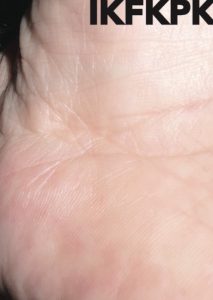
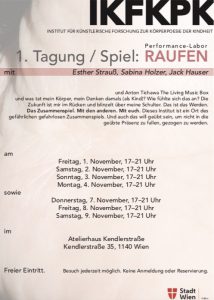
„The only country is childhood“ says Roland Barthes. What happens when we revisit this particular land? What limits do we encounter? What happens when we meet or cross it?
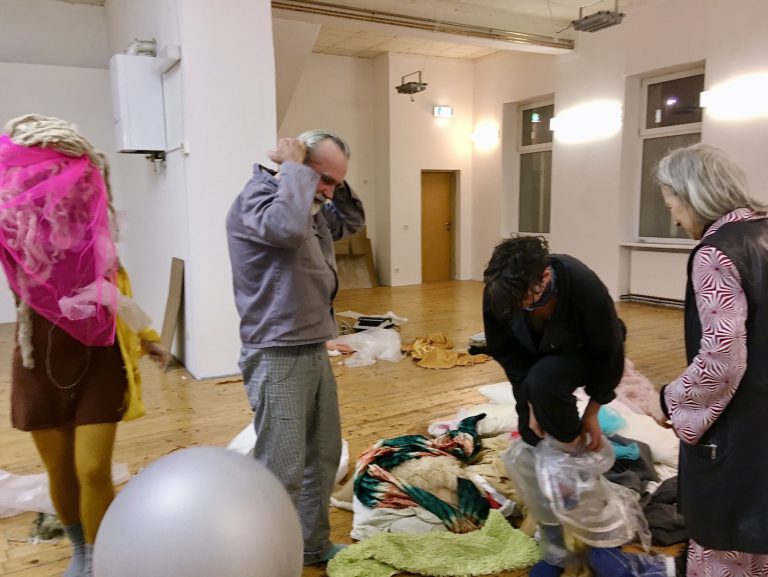
IM BAD MIT DIANA
(Video from 1.Tagung: Raufen, by Jack Hauser)
Esther Strauß, Sabina Holzer, Jack Hauser invited cordially to the IKFKPK – Institute for Artistic Research on the Body Poetry of the Childhood. The project took place as a trans-disciplinary performance laboratory in Atelierhaus Kendlerstraße in Vienna for 7-days. Special guest: Anton Tichawa.
„In the Institute for Artistic Research on the Physical Poetry of Childhood,
we hand over the clocks in favour of a present felt to be eternal.
The institute is reinvented every day; it is created right now.
We have no audience, only playmates.
We allow ourselves to dance thoughts and think the dance.
Everything belongs to everyone.
We are pushing forward for research, hand in hand.“
(Strauss / Hauser / Holzer)
*******************************
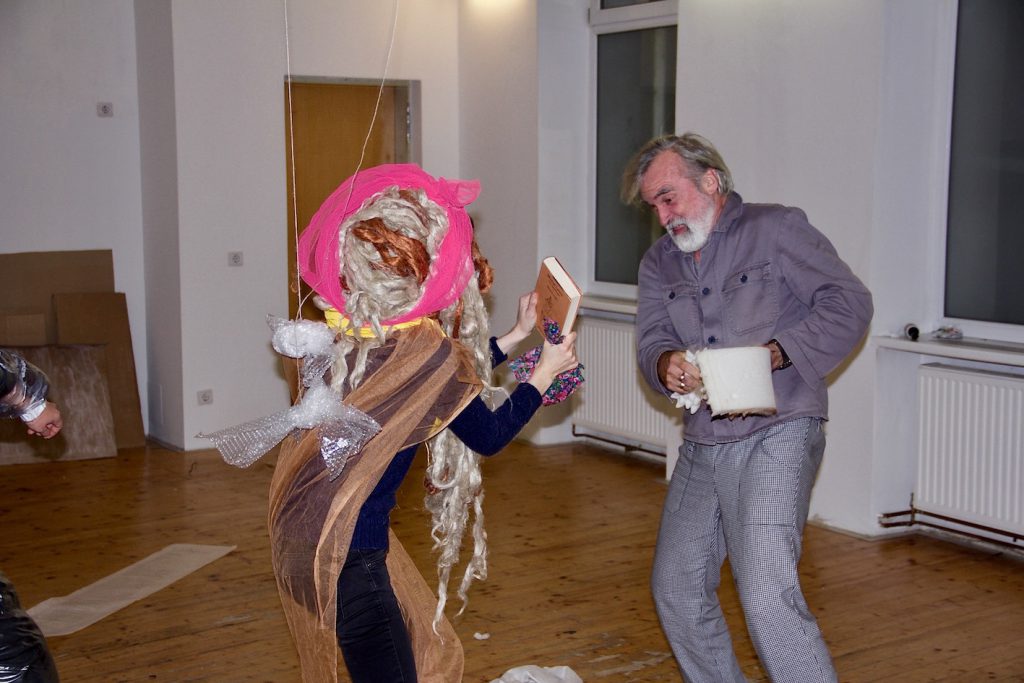
Our process was informed by a curiosity heading in the direction of the following aspects and questions:
— How can we share and exchange childhood memories and experiences?
— What is artistic research? „Art and science are often understood as opposites, although they share many similarities. Among them is also the interest in knowledge-gain and knowledge-increase. Nevertheless, the term artistic research often encounters misunderstanding. Yet it is not the art that mutates into research by asking questions and striving for knowledge, but rather the research that can become artistic when fed by artistic experience. The knowledge that can be gained as a result is sensuous and corporeal, and in this sense a tangible and felt knowledge.“ (Juian Klein)
— Childhood? Childhood refers to the period in a person’s life from birth to sexual development (puberty). The definition of content of childhood refers less to a biological phase of life – its meaning content is primarily determined culturally and socially. In developmental psychology, childhood follows infancy (ages 2 and 3) and is divided into early childhood (ages 4 to 6), mean childhood (ages 7 to 10), and late childhood (11 to 10, up to the age of 14). After childhood follows the phase of adolescence, adolescence.
— Tussling (German: raufen):
[1] take something out of the ground, tear
[2] fight without weapons
Ancestry: Middle High German call „plucking“, also „fidget“. Old High German call „pluck, break, tear“, since around 800 AD.
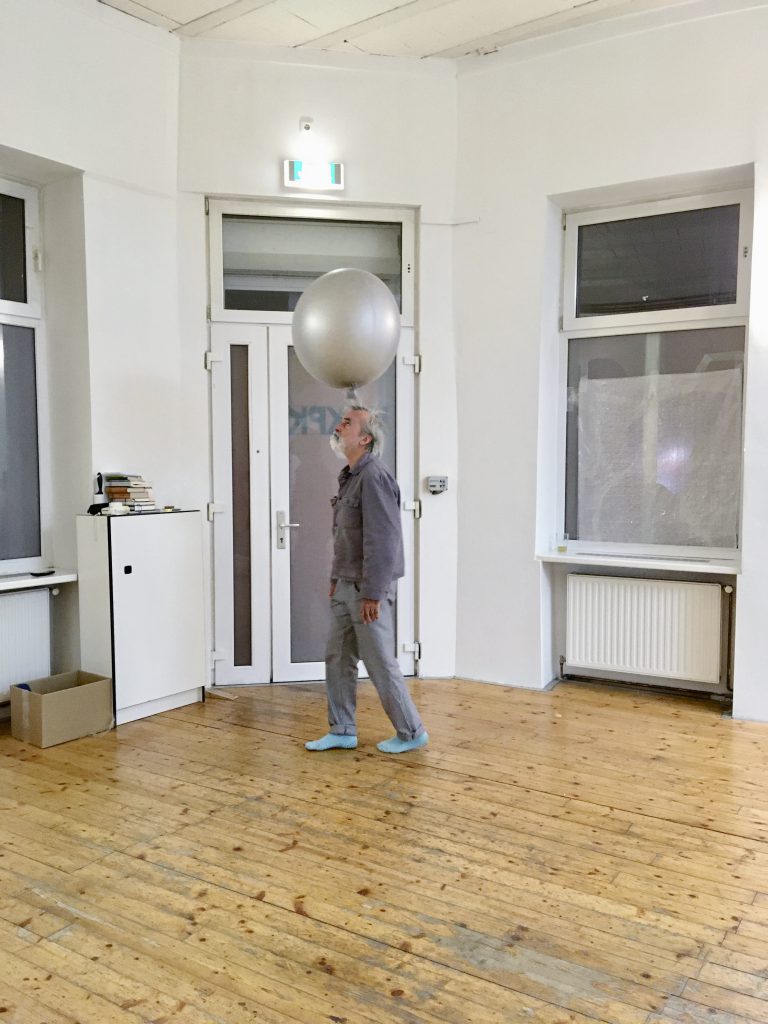
— Raking (German: raufen): is a process step in the production of natural fibers from common flax (also called flax) and refers here to the tearing out of the flat stems with their roots. The flax plant is „plowed“ out of the ground with its roots in small bundles from the earth, in order to obtain as long as possible stalk fibres for fibre pulping. After raking, the linen is arranged in parallel rows on the floor.
Roasting machines simultaneously separate the capsules of the flax plant from the straw. After raking, the roast follows as the first step of technical fiber pulping.
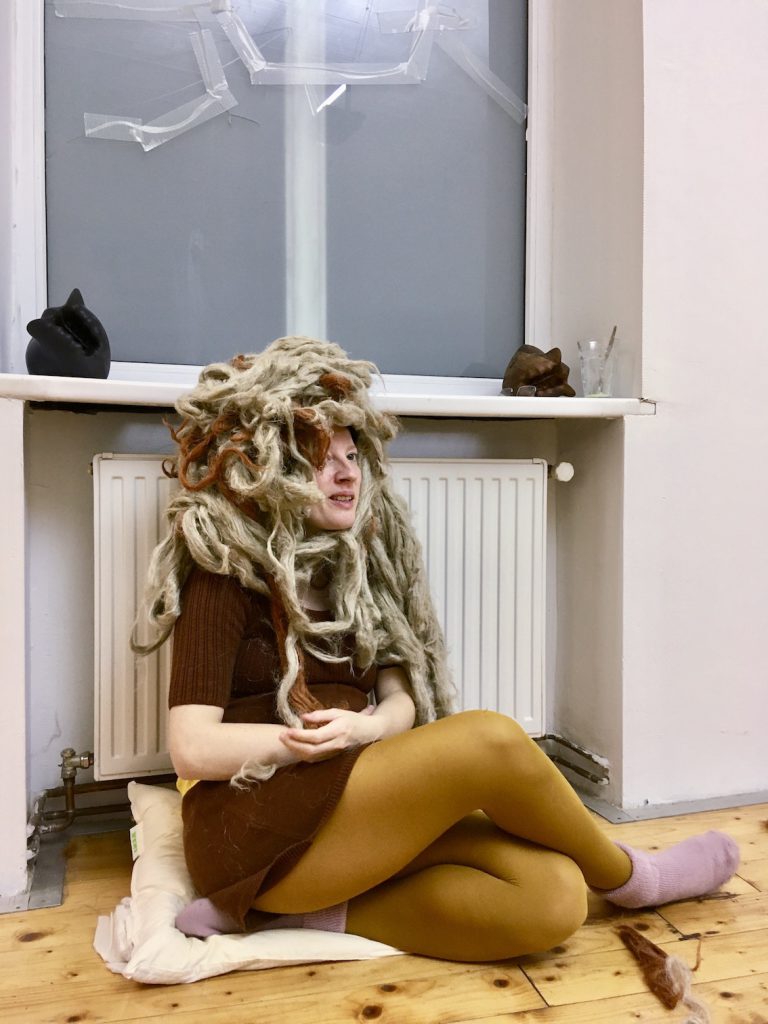
We wondered:
— What is this special state of play we relate to childhood?
— How can we create a residential space, which invites to linger, remember and invent activities to play?
— Can we create an uncoded space, where the volume of social conventions is turned down, so that other behaviours and an openness of playing with others can emerge?
— How can we inspire an horizontal awareness where there is no separation between subject and object?
— What is the meaning of „failure“ in a situation of play, a situation of research? Does it exist? How does it come into being? What are the implications?
— How can we invite the visitors to overcome different thresholds? E.g., the threshold from the outside space of the city and into the space of an unknown game yet to become?
— How to invite visitors to get involved with the objects on hand? How to make them traverse from inactivity to activity, i.e., to get them to play, to tussle.
In relaltion to these questions we constructed the following invitations and materials:
– Pillow Fight
– Anton, the Living Music Box
– The 2nd Skin
– The Uncanny Twins
– Electric Ghost
– Text Tussle
– Nest
– Tussle with an Invisible Opponent
– The Fan
– To Tear One’s Hair (Haare raufen)
– The Cards
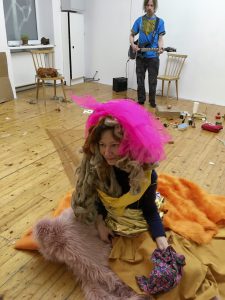
Visitors were invited to indulge in an open (unassigned) space with material and immaterial objects, to support freely our investigation of different perceptions of bodies in time and various states of play. To this purpuse, objects could be activated by everyone present together or alone. Even junking and sinking into possible and impossible details, were very welcome.
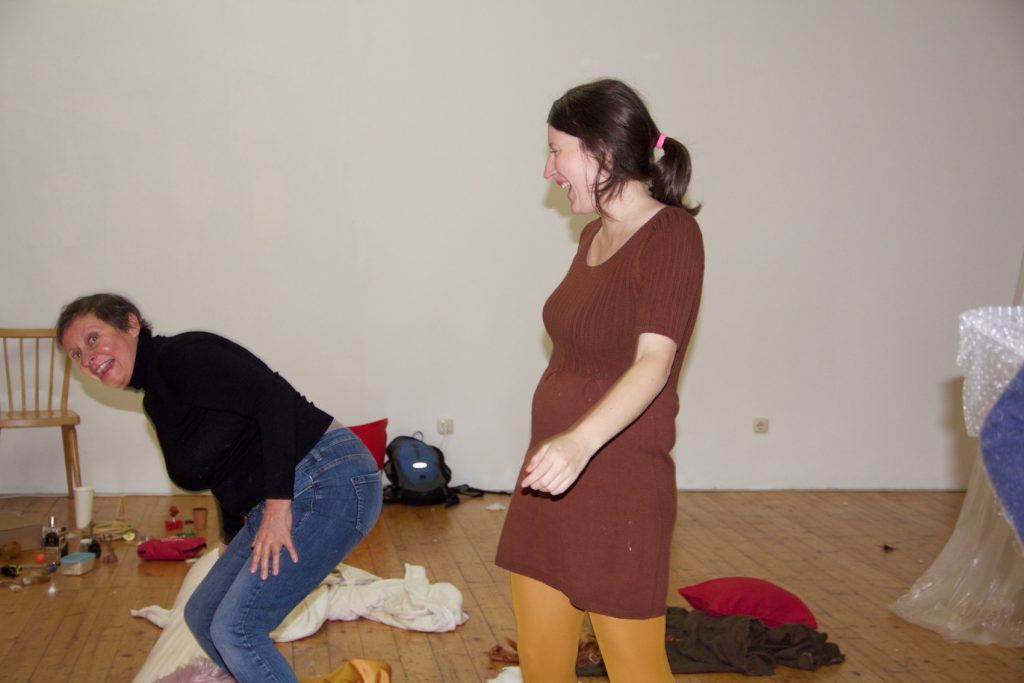
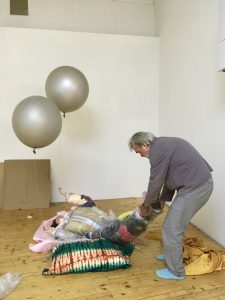
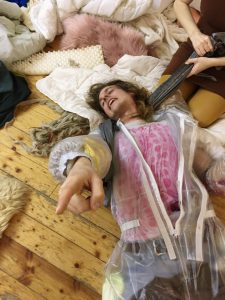
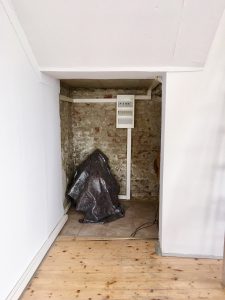 Photos: Sabina Holzer
Photos: Sabina Holzer
The Institut für künstlerische Forschung der Körperpoesie der Kindheit –
1.Tagung: Raufen, was realized with the friendly support of Wien Kultur
![]()
